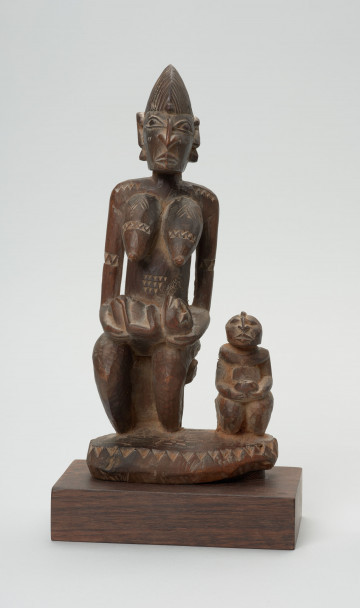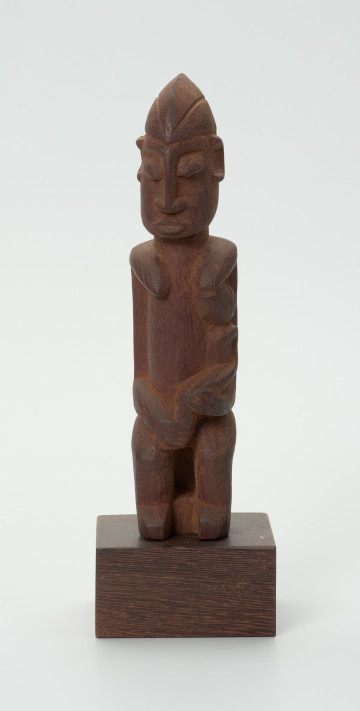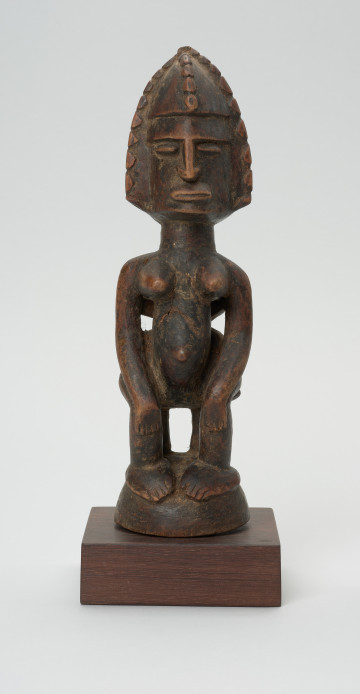
Figure - woman with child
między 1951 — 2000
National Museum in Szczecin
Part of the collection: Collection of Dogonian art
The birth of twins has always caused great excitement among African peoples. For some, this event was a blessing not only for the family but also for the entire local community, a hope for an abundant harvest. Other peoples treated the appearance of the twins as a violation of the divine order, a testimony to the animalisation of man and a real threat to the whole community.In the Dogon the birth of twins (in the Dogo-so language - ginne, ginene) is a good sign, which reminds us of the mythical times in which all beings were born in pairs. It is also an important event for the whole community. The mother and her children are visited by all the neighbours immediately after the birth, bringing gifts. During these celebrations, which last three days, the local gogon (griot), to the accompaniment of a drum, recalls the history of the Dogon, the history of the family in which the joyful event took place, and lists all the twins born in it. Since twins are usually born in a weakened physical condition, immediately after their birth the father orders for them leather amulets of moru with 8 kauri shells sewn on them (eight being the number of twins), which he hangs around their necks. Twins are a sign of good fortune, but men and women know and use various measures to protect themselves against twin pregnancies. Men, for example, avoid eating the meat of animals sacrificed on ginne bundo dishes as special dishes for twins. There are practical considerations behind this attitude. Two children mean double duty and a greater cost in terms of maintenance and upbringing. They also fear losing their children, as twins die in infancy much more often than children from single pregnancies.
Ewa Prądzyńska
Author / creator
Dimensions
cały obiekt: height: 44,5 cm, width: 8,5 cm
Object type
figure
Creation time / dating
Creation / finding place
Identification number
Location / status

między 1951 — 2000
National Museum in Szczecin

między 1951 — 2000
National Museum in Szczecin

między 1951 — 2000
National Museum in Szczecin
DISCOVER this TOPIC
Castle Museum in Łańcut
DISCOVER this PATH
Educational path